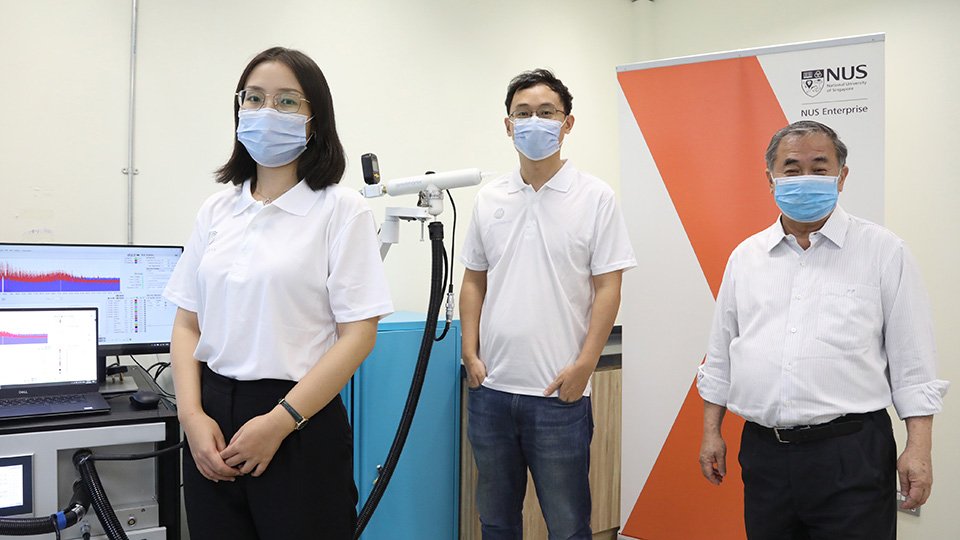
Image credit- NUS
Breathonix, a spin-off company from the National University of Singapore (NUS), has developed an easy-to-use breath test to detect COVID-19 within a minute. This game-changing technology, which is believed to be the first in Asia, achieved more than 90 per cent accuracy in a Singapore-based pilot clinical trial that involved 180 patients.
“Our breath test is easy to administer, and it does not require specially-trained staff or laboratory processing. Results are generated in real-time, making it an attractive solution for mass screening, especially in areas with high human traffic. We believe our breath analysis platform shows promise in changing the tides of this pandemic,” said Dr Jia, Chief Executive Officer of Breathonix.
The revolutionary breath analysis technology developed by Breathonix offers a fast and convenient solution to identify COVID-19 infection. It works by detecting Volatile Organic Compounds (VOCs) present in a person’s exhaled breath.
Dr Jia explained, "VOCs are consistently produced by various biochemical reactions in human cells. Different diseases cause specific changes to the compounds, resulting in detectable changes in a person’s breath profile. As such, VOCs can be measured as markers for diseases like COVID-19.”
The test is simple to administer. A person only needs to blow into a disposable mouthpiece connected to a high-precision breath sampler. The exhaled breath is collected and fed into a cutting-edge mass spectrometer for measurement. A machine learning software analyses the VOC profile and generates the result in less than a minute.
“The disposable mouthpiece that our system uses has a one-way valve and a saliva trap, preventing inhalation and any saliva from entering the machine. This makes cross-contamination unlikely,” said Mr Du, Chief Operating Officer of Breathonix.
If assessed to be suitable, this breath analysis platform could potentially be deployed in airports to facilitate the recovery of the tourism sector, as well as in places with high human traffic, such as dormitories.




